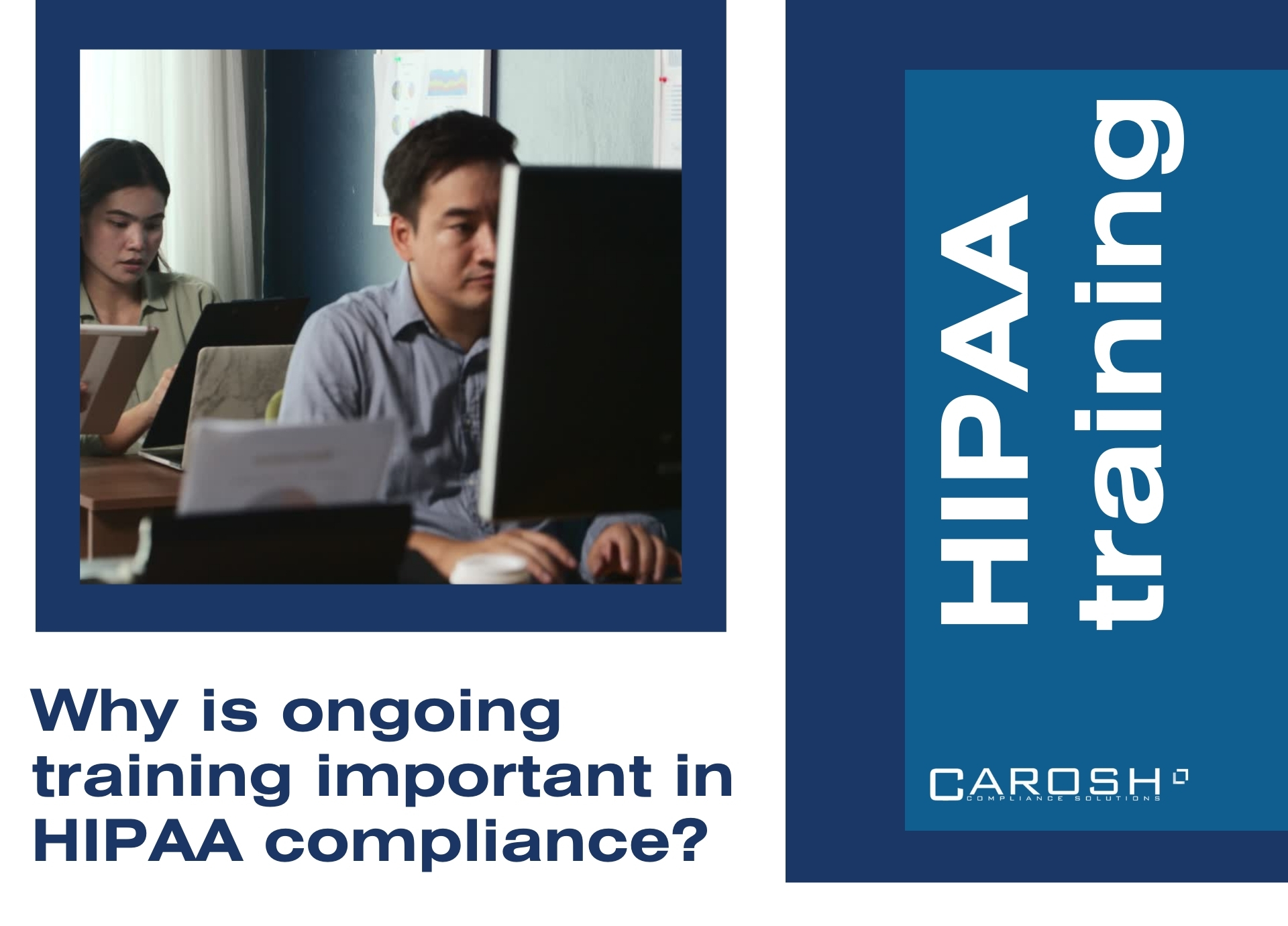
In the healthcare industry, the protection of patient information is not just a matter of ethical responsibility but also a legal requirement under the Health Insurance Portability and Accountability Act (HIPAA). HIPAA compliance training plays a pivotal role in educating healthcare professionals and staff about the proper handling of Protected Health Information (PHI). This training is critical for ensuring that patient data is treated with the highest level of confidentiality and security. This comprehensive guide delves into the various facets of HIPAA compliance training, exploring its key components, implementation of best practices, the importance of ongoing training, and the overarching benefits of such programs. Understanding these aspects is essential for healthcare entities to maintain compliance with HIPAA regulations and foster an environment of trust and safety for patients.
Key Components of HIPAA Compliance Training
HIPAA compliance training is an essential component of healthcare operations, beginning with a thorough overview of HIPAA regulations to lay the groundwork for understanding the legal obligations of handling Protected Health Information (PHI). This training includes detailed discussions on the Privacy Rule, which sets standards for protecting individuals’ medical records and personal health information. It also delves into the Security Rule, which establishes requirements for safeguarding electronic PHI, encompassing necessary administrative, physical, and technical safeguards. Additionally, the Breach Notification Rule is covered extensively, teaching healthcare professionals the procedures for notification following a breach of unsecured PHI, including timelines and notification content.

An integral part of HIPAA training focuses on the rights of patients under HIPAA. This includes educating participants about patients’ rights to access their health information, the processes involved in handling requests for access, and the criteria for amendments to their medical records. Training also covers patients’ rights to receive an accounting of disclosures of their PHI, outlining how healthcare entities should document and report these disclosures.
Moreover, the training addresses the roles and responsibilities of various stakeholders in protecting PHI. Participants learn to identify covered entities under HIPAA, including healthcare providers, health plans, and healthcare clearinghouses, and understand what constitutes PHI. The training emphasizes the conditions under which PHI can be used or disclosed, differentiating between situations requiring patient authorization and those that do not. It also highlights each individual’s responsibility in adhering to privacy policies, recognizing potential violations, and understanding the legal and ethical consequences of mishandling PHI. Overall, HIPAA compliance training is not just about legal adherence; it’s about fostering a culture of privacy and security within healthcare organizations, ensuring the protection of patient information, and maintaining patient trust in the healthcare system.
Implementation and Best Practices
Effective HIPAA compliance training goes beyond imparting theoretical knowledge; it places significant emphasis on the practical application of learned concepts. This includes instructions on securing Protected Health Information (PHI), whether it be stored physically or electronically. Trainees are taught the best practices for keeping PHI safe, such as secure storage methods for physical records and robust protections for electronic data. The training highlights the importance of responding promptly and effectively to potential breaches, ensuring that staff members are prepared to act decisively in such scenarios.

The training also delves into specific security measures that are essential in safeguarding PHI. Participants learn about the importance of using strong passwords as a first line of defense against unauthorized access to electronic health records. They are taught about the benefits of encrypting data, which adds an additional layer of security, making PHI unreadable to those without proper authorization. Additionally, the training emphasizes the need for regular updates to security systems and software, which are crucial in protecting against emerging cyber threats and vulnerabilities.
Handling breaches of PHI is another critical component of the training. This aspect focuses on teaching healthcare professionals how to recognize signs of a breach and the appropriate steps to follow in such events. Trainees learn about the internal reporting processes within their organization, ensuring they know who to contact and what information to provide when they suspect a breach. The training also covers the legal requirements for notifying affected patients and relevant authorities, detailing the timelines and procedures for such notifications. This comprehensive approach ensures that healthcare professionals are not only aware of how to protect PHI but also how to respond effectively in the event of a breach, thereby maintaining compliance with HIPAA regulations and safeguarding patient trust.
Ongoing HIPAA Compaliance Training and Awareness
HIPAA compliance training is an ongoing process, not merely a one-time event. To ensure that healthcare professionals remain well-versed in HIPAA regulations and adept at handling Protected Health Information (PHI), regular updates and refreshers in training are essential. These updates are crucial for keeping pace with the evolving legal landscape and changes in healthcare practices. As laws and regulations are amended or new ones are introduced, continuous training ensures that staff members are always up-to-date with the current requirements.
The practice of regular training sessions plays a significant role in fostering a culture of compliance within healthcare organizations. By continually emphasizing the principles and importance of HIPAA, these training sessions encourage staff to remain vigilant and proactive in protecting patient information. This ongoing educational effort reinforces the commitment to uphold HIPAA standards, ingraining the principles of patient data protection into the organizational ethos.
The importance and benefits of HIPAA training extend beyond merely adhering to legal requirements. While legal compliance is indeed a key driver—given that failure to comply with HIPAA can lead to substantial fines, penalties, and reputational damage—there are other equally significant benefits. One of the primary advantages is the cultivation of patient trust. When patients are confident that their healthcare providers are thoroughly trained and committed to safeguarding their health information, it fosters a stronger, more trusting relationship. Patients are more likely to share crucial health information when they trust that their data will be handled with care and confidentiality. This trust is foundational to effective patient care and is bolstered by the organization’s evident commitment to continuous HIPAA training and compliance. In summary, regular HIPAA compliance training is a critical component in maintaining legal adherence, fostering a culture of compliance, and building patient trust, all of which are indispensable in the realm of healthcare.

HIPAA compliance training stands as an essential pillar in safeguarding patient privacy and maintaining the integrity of healthcare services. It is a dynamic process that involves not only understanding the nuances of HIPAA regulations but also applying this knowledge practically to protect PHI. Regular updates and continuous training are crucial in adapting to legal changes and evolving healthcare practices. The benefits of such comprehensive training extend beyond legal compliance; they enhance patient trust and uphold the healthcare industry’s commitment to confidentiality and ethical handling of sensitive information. In essence, effective HIPAA compliance training is fundamental in fostering a culture of privacy and security within healthcare organizations, ensuring that patient information is handled responsibly and in accordance with the law.
Q&A
Q: What is the purpose of HIPAA compliance training in healthcare?
A: HIPAA compliance training is essential in the healthcare industry for educating professionals and staff about properly handling Protected Health Information (PHI). This training ensures the highest level of confidentiality and security for patient data, fulfilling both ethical responsibilities and legal requirements under HIPAA.
Q: What are the key components covered in HIPAA training?
A: Key components include a thorough overview of HIPAA regulations, such as the Privacy Rule, the Security Rule, and the Breach Notification Rule. The training also emphasizes patients’ rights under HIPAA, such as access to their health information, and covers roles and responsibilities related to PHI.
Q: How does HIPAA training address practical application?
A: HIPAA training goes beyond theoretical knowledge to include practical application, such as securing PHI in both physical and electronic forms and responding effectively to potential breaches. It also covers specific security measures like using strong passwords, encrypting data, and updating security systems.
Q: Why is ongoing training and awareness important in HIPAA compliance?
A: Ongoing training and awareness are vital to keep healthcare professionals up-to-date with changes in HIPAA regulations and healthcare practices. Continuous training helps foster a culture of compliance and vigilance in protecting patient information within healthcare organizations.
Q: What are the benefits of regular HIPAA compliance training?
A: Regular HIPAA training enhances patient trust and supports the healthcare industry’s commitment to confidentiality and ethical handling of sensitive information. It also ensures legal compliance, helping healthcare entities avoid potential fines, penalties, and reputational damage associated with HIPAA violations.




